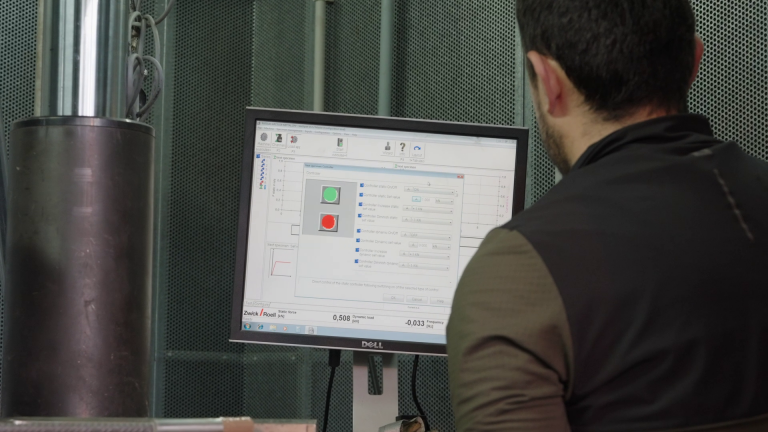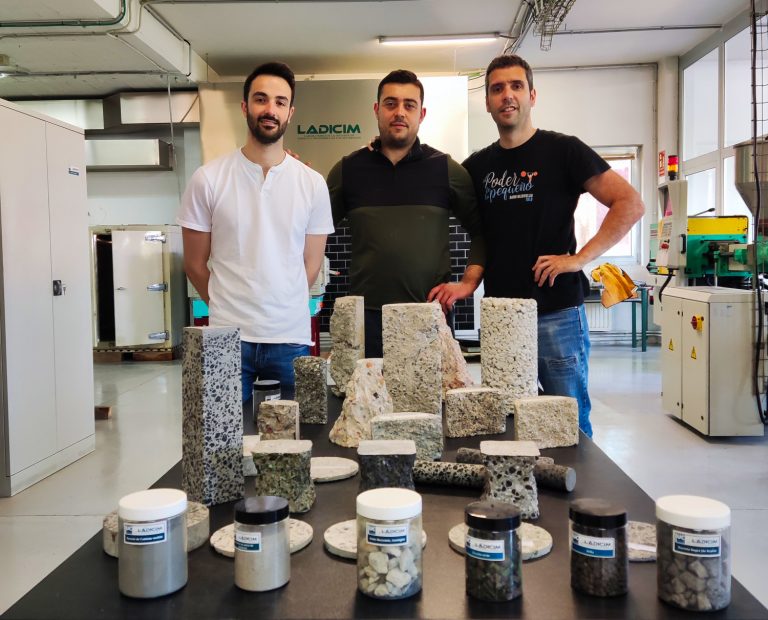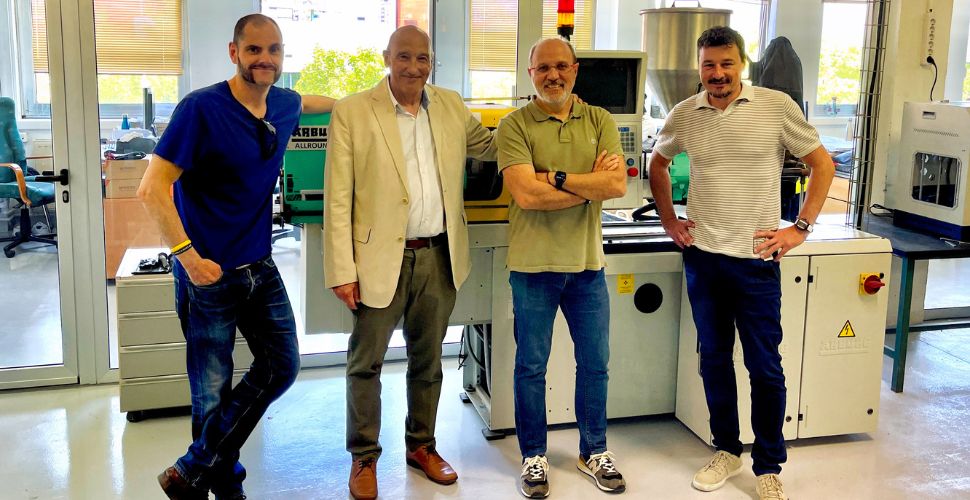The University of Cantabria promotes four of the main researchers of LADICIM
The Laboratory welcomes the appointments of José Antonio Casado, Diego Ferreño, Federico Gutiérrez-Solana and Carlos Thomas, as well as the indefinite hiring of young talent.
The University of Cantabria (UC) has promoted several professors who carry out their research activity in the Laboratory of the Materials Science and Engineering Division (LADICIM) in the last public employment announcement.
The researchers José Antonio Casado and Diego Ferreño have been promoted to the category of professors, the highest category in the academic career and an important recognition of their dedication and contribution in their respective fields. Carlos Thomas, a member of the LADICIM team since 2006, has also been promoted to full professor.
On the other hand, the driving force and first director of LADICIM, Professor Federico Gutiérrez-Solana, has been distinguished by the UC Governing Council as professor emeritus, a special recognition awarded to retired professors who have demonstrated exceptional performance in their academic career and who have made a significant contribution to their field of specialisation and to the academic institution where they have worked.
Gutiérrez-Solana, professor emeritus
Gutiérrez-Solana began his professional career in engineering consultancy firms such as Typsa and Construcciones Colomina. In 1978 he began his academic career at the Polytechnic University of Madrid, where he received his doctorate in 1981 with an Extraordinary Prize. After being a research associate at Carnegie Mellon University in 1983, he joined the University of Cantabria as head of the Materials Science area at the School of Civil Engineering. In 1989 he was appointed Professor in the Department of Materials Science and Metallurgical Engineering. He held the position of Director of the School of Civil Engineering from 1986 to 1994 and later assumed leadership roles at the University of Cantabria, including the positions of Vice-Rector for Teaching Staff and Vice-Rector for Planning and Development.
In 2002, after the death of Rector Juan José Jordá, he was appointed acting Rector of the University of Cantabria, a position he held until 2012 after winning the two electoral processes in which he stood for election and which included the launch of the Campus of International Excellence, which enabled the creation of several research institutes. Since May 2009, he has also served as president of the Conference of Rectors of Spanish Universities (CRUE).
As a researcher, Gutiérrez-Solana has supervised 16 doctoral theses and has been at the head of numerous European and national research programmes. He has worked on contracts with international and national organisations and companies, focusing on Structural Integrity and the modelling of the mechanical behaviour of materials and components. He is the author of more than 300 journal articles and numerous monographs, and has been a lecturer at several American and European universities and visiting professor at CARNEGIE Mellon, Tufts and Université Paris-Saclay. His work has been recognised with awards for LADICIM such as that of the Social Council of the University of Cantabria and the University-Business Foundation Network Award.

Casado and Ferreño, new professors at LADICIM
José Antonio Casado has been a lecturer in the area of Materials Science and Metallurgical Engineering since 2003, accumulating three decades of teaching experience in the mechanical and microstructural characterisation of materials. His research and transfer work is linked to railway track superstructure materials and components.
He currently holds the position of Laboratory Director of the Materials Science and Engineering Division and represents LADICIM in the European Committee for Track Standardisation. Between 2017 and 2021 he headed the Department of Terrain and Materials Science and Engineering.
Diego Ferreño holds a PhD in Civil Engineering, a master’s degree in Numerical Methods applied to Engineering, a degree in Physics and a master’s degree in Data Science. As a researcher, he has participated in more than 60 research and transfer projects at national and European level, which have enabled the Laboratory and the University of Cantabria to obtain more than 18 million euros for research. In 2009 he won the Research Award of the Social Council of the University of Cantabria in the Engineering Area. He was Deputy Director of International Relations and Coordinator of Exchange Programmes at the School of Civil Engineering between 2011 and 2014. To date, he has published more than 60 research articles in JCR-indexed journals and four books. He has participated in more than 30 scientific conferences at national and international level.
His main lines of research are structural integrity of components, modelling of neutron embrittlement of nuclear vessels, finite element numerical simulation of mechanical, thermomechanical and fracture processes, modelling of the behaviour of biological materials and development of ‘machine learning’ and ‘deep learning’ models in the field of structural analysis of manufacturing processes and prediction of neutron embrittlement in nuclear vessels..
Carlos Thomas, new tenured professor
Carlos Thomas is an Extraordinary Doctorate Award with International Doctorate Mention, a graduate in Physical Sciences, specialist in Building Rehabilitation at the University of Cantabria, where he is a lecturer in the area of Materials and coordinator of the Doctoral Programme in Heritage and Rehabilitation of Existing Buildings. His research activity has focused on the recovery of waste from construction, demolition and industry for the manufacture of recycled materials. He has participated in more than 40 R&D&I projects, which have raised more than 8.5 million euros for research in the field of recycled materials. This has resulted in more than 80 articles published in international JCR indexed journals and 2 Highly Cited Papers.
Thomas is also editor-in-chief of the Journal of Building Engineering (Q1, Elsevier) and throughout his academic career he has spent time in France (Socrates-Erasmus programme), Germany (Leonardo programme), Brazil (Banco Santander programme) and Portugal (José Castillejo programme).

Permanent research staff
The latest call for the recruitment of permanent research staff has also allowed the Laboratory to consolidate the position of three young scientists. They are, on the one hand, Pablo Tamayo and Samuel Gutiérrez, researchers linked to the line on characterisation and modelling of the physical and mechanical behaviour of mortars and concretes. Both are developing the Isobara project, funded by the Ministry of Science and Innovation
The third researcher incorporated in the call is the Mining Engineer Isaac Rivas, who is part of the line on characterisation and modelling of the mechanical behaviour of railway superstructure components. Rivas will develop his doctoral thesis in the context of the Smart Algorithms project, awarded in the call for Knowledge Generation Projects 2021 and also funded by the Ministry of Science and Innovation.
These new additions represent LADICIM’s commitment to expand its research capabilities and to advance knowledge and innovation by contributing to the development of cutting-edge solutions and technologies.



